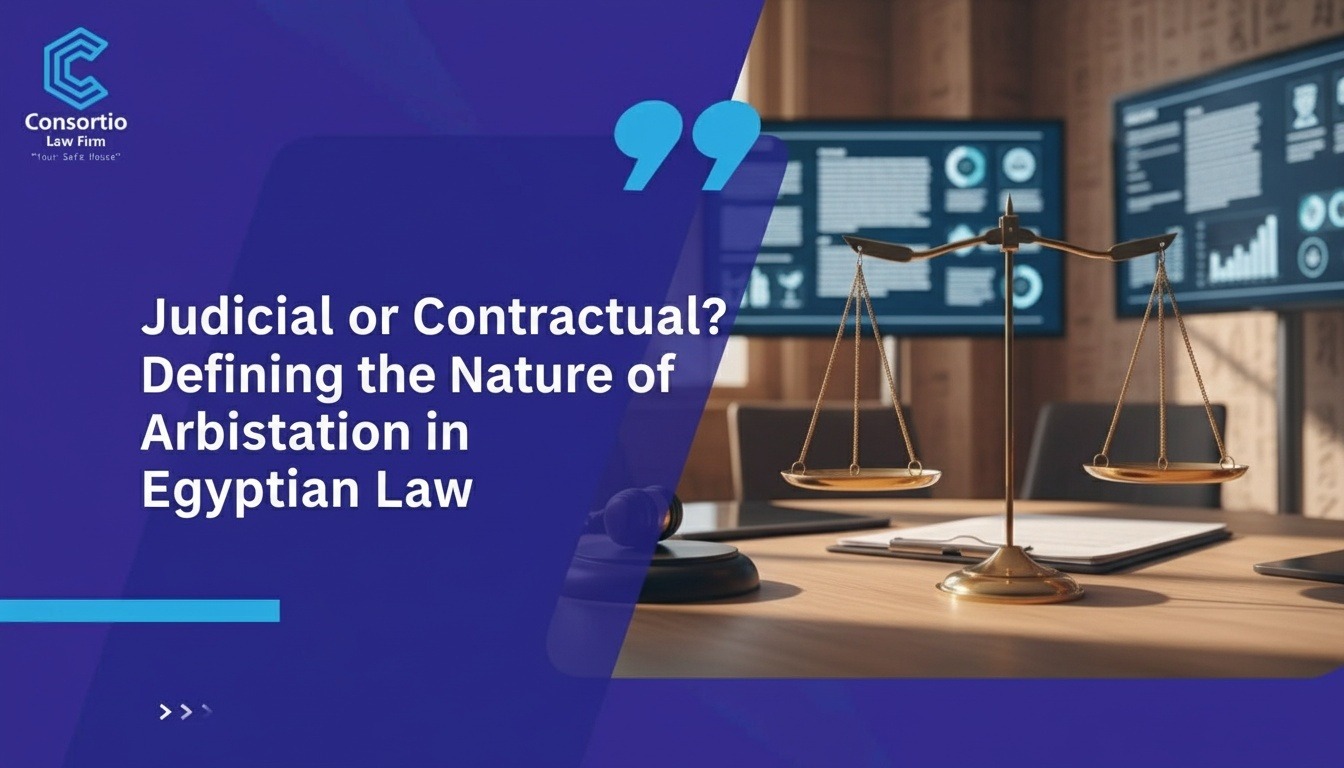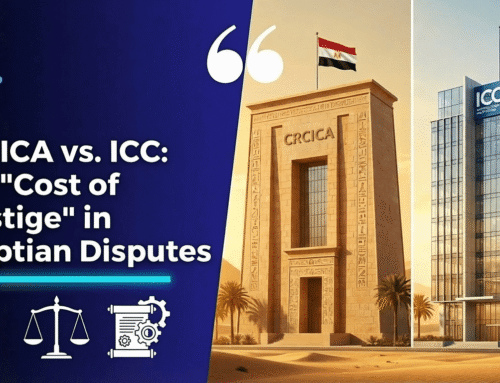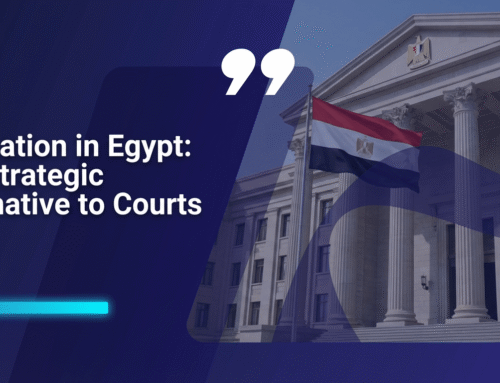Introduction
The legal nature of arbitration in Egyptian law remains one of the most intriguing questions in modern jurisprudence. It lies between two distinct spheres: contractual autonomy and judicial authority. Egyptian legal scholars and courts, including the Supreme Constitutional Court, describe arbitration as a judicial system founded upon agreement (نظام قضائي اتفاقي).
This article explores the dual nature of arbitration in Egypt, analyzing its contractual roots, its judicial function, and how Egyptian law has created a hybrid system balancing freedom of contract with state judicial oversight.
I. The Contractual Foundation: Source of Authority
1️⃣ Agreement as the Source of Power
Arbitration in Egyptian law derives its legitimacy from the parties’ mutual consent. It is fundamentally an agreement-based system (système conventionnel) that operates only when both parties choose to submit their dispute to private adjudication.
The arbitration agreement (اتفاق التحكيم) must meet all legal requirements of a valid legal act, including competent capacity, lawful subject matter, and mutual consent. It takes two main forms:
-
Arbitration Clause (Clause Compromissoire): Agreed upon before a dispute arises, included in the main contract.
-
Submission Agreement (Compromis): Concluded after the dispute emerges.
2️⃣ Primacy of Party Autonomy
Party autonomy is the cornerstone of arbitration. It empowers the parties to define:
-
The procedures to be followed.
-
The subject matter of the dispute.
-
The composition and appointment of the arbitral tribunal.
-
The applicable law and procedural rules.
-
The language and seat of arbitration.
This autonomy ensures flexibility and neutrality, but it must always operate within the framework of Egyptian public policy.
3️⃣ Writing Requirement
Egyptian arbitration law imposes a mandatory writing requirement. The agreement must be in writing (مكتوباً), and failure to do so renders it null and void. This written condition is considered an essential element for the agreement’s existence and validity (ركن لانعقاده ووجوده).
II. The Judicial Function: Arbitration as a Judicial Process
Despite its contractual roots, arbitration functions as a judicial process (نظام قضائي). It provides an alternative means of resolving disputes that mirrors the procedural guarantees of court litigation.
1️⃣ The Arbitrator as a Private Judge
The arbitrator (المحكم) acts as a private judge (قاضٍ خاص). They perform a judicial mission (مهمة قضائية) comparable to that of state judges. During proceedings, the arbitral tribunal ensures essential guarantees such as:
-
Equality between parties.
-
The right to be heard and to present a defense.
-
The principle of confrontation and transparency.
2️⃣ The Judicial Nature of the Award
The arbitral award (حكم التحكيم) is a binding judicial act that carries the authority of res judicata (حجية الأمر المقضي). Once rendered, the dispute cannot be relitigated before any court or arbitral tribunal.
However, unlike state court judgments, arbitral tribunals lack imperium—the power to enforce their own decisions. Enforcement requires a state court’s execution order, issued by the competent Egyptian court under the Arbitration Law No. 27 of 1994.
III. The Egyptian Legal Position: A Hybrid Judicial-Contractual System
Egyptian jurisprudence adopts a synthesis: arbitration is a judicial system founded on a contract. It begins with party autonomy but culminates in a judicial act.
1️⃣ Judicial Recognition in Egypt
The Court of Cassation in Egypt has confirmed this dual nature, stating:
“Arbitration is a technical means having a judicial nature whose purpose is to decide a dispute.”
This recognition harmonizes private autonomy with the public function of justice, ensuring that arbitral decisions remain both independent and enforceable within the state system.
2️⃣ Limits Imposed by Public Order
To maintain the balance between freedom and legality, Egyptian law restricts arbitration to disputes that can legally be settled.
-
Arbitrability: Only disputes where conciliation is permissible may be arbitrated.
-
Public Order: Tribunals cannot decide matters involving public policy, such as criminal accountability or exceptional tenancy extensions.
-
Jurisdictional Oversight: While arbitral tribunals can rule on their jurisdiction (Kompetenz-Kompetenz), Egyptian courts retain the power to review agreements that violate public order.
Conclusion
In Egyptian law, arbitration occupies a unique dual character. It originates as a contractual mechanism, dependent on the will of the parties, but its function is judicial, producing a binding decision recognized by the state.
This hybrid nature—a judicial system born of agreement—reflects Egypt’s commitment to modern dispute resolution while preserving state sovereignty and legal integrity.
Additional Resources
Hire the Best Arbitration Lawyer in Egypt – Consortio Law Firm
Consortio Law Firm on LinkedIn – Arbitration Award Enforcement in Egypt
The Ultimate Guide to Egypt Company Incorporation with Consortio
Egypt Investment Law No. 72 of 2017
“Before you commit to a lawsuit, understand the actual timeline and execution risks in our detailed guide to Commercial Litigation in Egypt.”
If you’re considering arbitration in Egypt or require legal assistance drafting arbitration clauses, contact Consortio Law Firm for expert guidance.
📞 002 01028806061 | 💬 WhatsApp | ✉️ Info@consortiolawfirm.com





